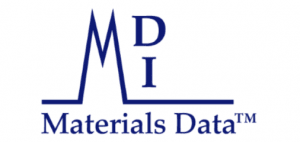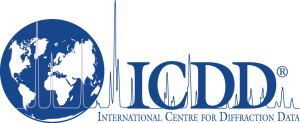
About ICDD
The International Centre for Diffraction Data (ICDD®) is a non-profit scientific organization dedicated to collecting, editing, publishing, and distributing powder diffraction data for the identification of materials. The membership of the ICDD consists of worldwide representation from academe, government, and industry.
Our Vision
The International Centre for Diffraction Data will continue to develop tools and support the education required for materials analyses of tomorrow.
Our Mission
The International Centre for Diffraction Data will continue to be the world center for quality diffraction and related data, and world-class software to meet the needs of the technical community. ICDD promotes the application of materials characterization methods in science and technology by providing forums for the exchange of ideas and information.

Chair
Robert Dinnebier
Max-Planck Institute for Solid State Research
Stuttgart, Germany

Vice Chair
Carlo Segre
Illinois Institute of Technology
Chicago, IL, USA

Treasurer
Bryan R. Wheaton
Corning
Corning, NY, USA

*Corporate Secretary
Denise Zulli
International Centre for Diffraction Data
Newtown Square, PA, USA

*Executive Director
Tom Blanton
International Centre for Diffraction Data
Newtown Square, PA, USA

Chair, Technical Committee
Charlene Greenwood
Keele University
Staffordshire, United Kingdom

Director-at-Large (2022-2026)
Graciela Díaz de Delgado
University de Los Andes
Mérida, Venezuela

Director-at-Large (2022-2026)
Takashi Ida
Nagoya Institute of Technology
Tajimi, Gifu, Japan
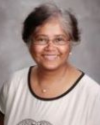
Director-at-Large (2024-2028)
Ashfia Huq
Sandia National Labs
USA

Director-at-Large (2024-2028)
António M. dos Santos
Oak Ridge National Lab.
Oak Ridge, TN, USA

Director-at-Large (2024-2028)
Leopoldo Suescun
Universidad de la República
Montevideo, Uruguay

Past Chair
Andrew Payzant
Oak Ridge National Lab.
Oak Ridge, TN, USA
Past Chair:
- Matteo Leoni (2016-2024)
- Scott Misture (2012-2016)
- Thomas Blanton (2008-2012)
- James Kaduk (2004-2008)
- Camden R. Hubbard (2000-2004)
- Robert L. Snyder (1996-2000)
- Gerald G. Johnson, Jr. (1992-1996)
- Ludo K. Frevel (1990-1992)
- Deane K. Smith (1978-1982; 1986-1990)
- Gregory J. McCarthy (1982-1986)
- Donald Hanawalt (1976-1978)
- Jesse W. Caum (1975-1976)
- LeRoy L. Wyman (1975-1975)
- William Fink (1961-1974)
- Harold W. Rinn (1956-1961)
- Wheeler P. Davey (1941-1956)
Past Executive Directors:
Timothy Fawcett (2001-2017)
Julian Messick (interim 2001)
Ron Jenkins (1998-2001)
Past General Managers:
Ron Jenkins (1996-1998)
Helein Hitchcock (interim 1996)
Daniel Richardson (1995-1996)
Julian Messick (1983-1994)
Jesse Caum (1979-1983)
Andrew W. Danko (1973-1979)
Roger G. Simard (1970-1973)
*Non-voting
The position of Technical Co-chair (consultant) was established to bring the mission and vision of the ICDD to every region of the globe. The co-chairs are ICDD members and act as ICDD representatives in their geographic regions. They serve as a communication bridge between ICDD, its members, and the powder diffraction community in the area. Among other activities, the technical co-chairs recommend appropriate times and places for ICDD courses, workshops, and meetings, both basic and advanced ones. They recommend new members, Grant-in-Aid candidates, and coordinate local member activities.
NOTICE: Members may contact any Technical Co-Chair, regardless of region.
| Region | Co-Chair | |
| Eastern Pacific Rim | Takashi Ida | ida.takashi@nitech.ac.jp |
| European Community | Robert Dinnebier | r.dinnebier@fkf@mpg.de |
| India | T.N. Guru Row | ssctng@sscu.iisc.ernet.in |
| Indian Ocean Rim | Vanessa Peterson | vep@ansto.gov.au |
| Russia | Evgeny Antipov | antipov@icr.chem.msu.ru |
| North America | Mark Rodriguez | marodri@sandia.gov |
| People’s Republic of China | Xiaolong Chen | xlchen@aphy.iphy.ac.cn |
| Latin America Region | José Miguel Delgado | migueld@ula.ve |
| United Kingdom & Ireland | Steve Hillier | Stephen.Hillier@hutton.ac.uk |
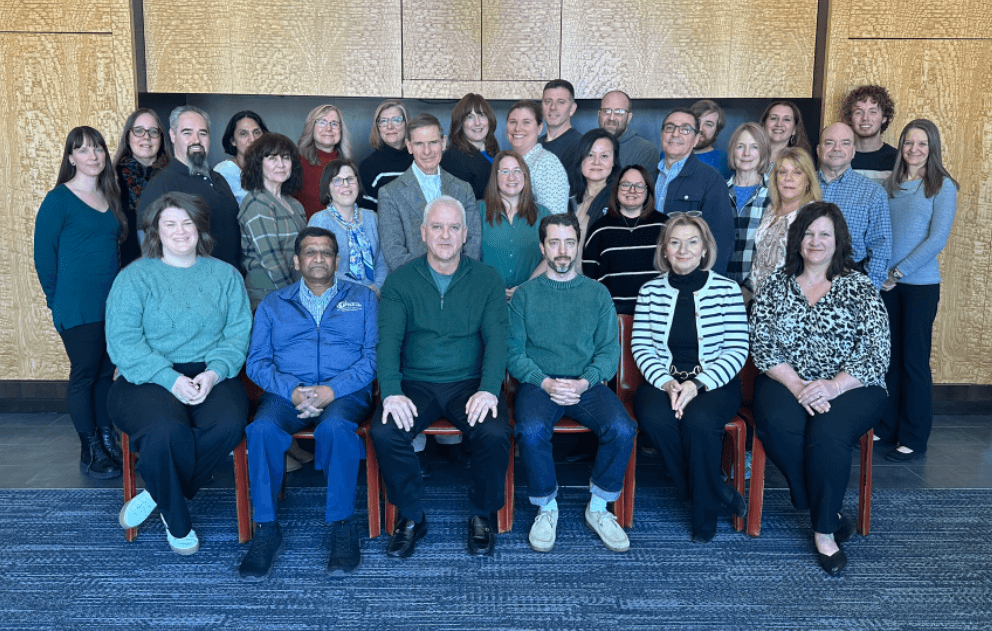
Administration
Dr. Thomas Blanton
Principal Scientist
Denise Zulli
Executive Secretary
Quality Records Administrator
Denise DelCasale
Information Technology
Noi Pancerev
Rhonda Dougherty
Business
Christine Naughton
Melissa Henriquez
Ben Hish
Brian Morris
Kristy McGroarty
Susan Purcell
Kimberly Carney
Conference Services and Communications
Stephanie Jennings
Monika Kottenhahn
Elizabeth Dempsey
Megan Marvel
Communications Coordinator
Rick Santangelo
Database and Editorial
Vesna Bosnic
Senior Database Programmer
Dr. Soorya Kabekkodu
Dr. Diane Sagnella
Dr. Anja Dosen
Michael Carr
David Bohnenberger
Stephen Trimble
Megan Rost
Nicole Ernst Boris
Managing Editor of Powder Diffraction Journal
Denise DelCasale
Engineering and Design
Justin Blanton
Rose Vithayathil
Chuck Weth
Clément Karumuhinzi
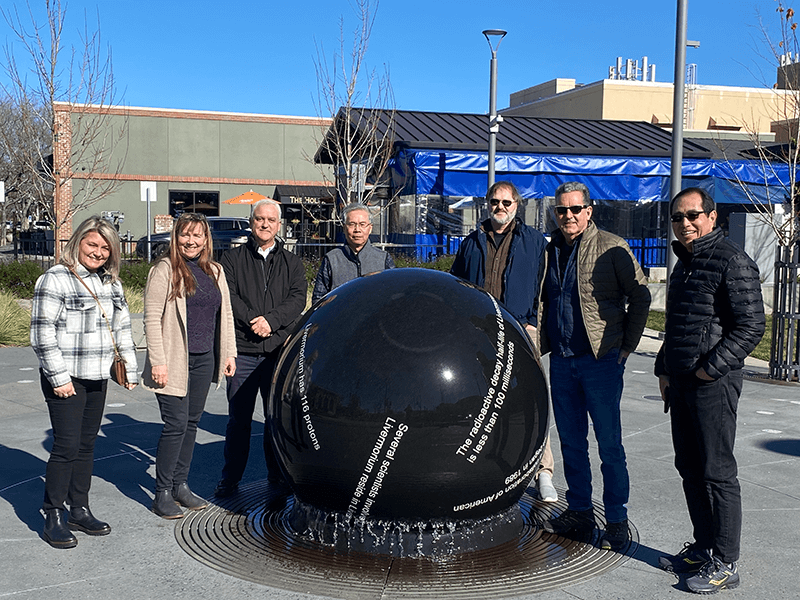
Materials Data
Scott Cole
Dr. Rongsheng Zhou
Dr. Steffen Weber
Dr. Xiaojing Zhu
Maj Cole
Jennifer Stephenson
Approximately 300 scientists from around the world comprise the active membership from which the organization draws its Board of Directors, committees, and subcommittees. Our members, who are volunteers, are actively engaged in developments in the field of X-ray powder diffraction and related disciplines. Membership consists of scientists from various affiliations – educational, governmental, and industrial.
See the ICDD Members (alphabetically and by country)

Independent Committees
Awards Committee (also a dependent committee)
The mission of the Awards Committee is to ensure that the various ICDD awards are distributed in a timely manner.
Executive Committee
The Executive Committee shall exercise all the general powers of the Board of Directors between meetings of the Board except as otherwise provided by the Board of Directors or by law.
Grant-in-Aid Committee
The Grant in Aid Review Committee shall review applications for grants in aid and make recommendations to the Board of Directors for the allocation of funds to support projects which are consistent with the purpose of the corporation.
Meeting Support Committee
The mission statement is currently under development.
Scholarship Committee
The Scholarship Committee shall designate recipients of scholarships after review of submitted applications.
Dependent Committees
Bylaws Committee
The Bylaws Committee shall be responsible for any revisions of the current Bylaws:
1. To ensure (through the Legal Counsel of ICDD) that the revised Bylaws conform to the laws of the Commonwealth of Pennsylvania and to the laws of the United States of America with respect to the tax exempt status of nonprofit educational organizations.
2. To review, periodically, the purpose of the corporation.
3. To hold scheduled meetings of the Bylaws Committee for tentative approval of any contemplated revisions and subsequently submit these tentative revisions to the Board of Directors for their consideration.
4. To clarify the current Bylaws, i.e., remove any contradictory statements, resolve any ambiguous language, prepare proposed amendments, and follow approved editing practices.
Finance Committee
The Finance Committee shall be responsible for the following:
• Execute the financial policies of ICDD as dictated by the Board of Directors.
• Make recommendations regarding disbursements and allocation of funds.
• Make recommendations regarding pricing.
• Approve and monitor the budget.
• Prepare and present, at each Annual Meeting of ICDD, a report covering the financial status of the corporation.
• The Finance Committee is the “parent” committee of the Marketing Subcommittee and of the Budget & Strategy Review Committee.
Subcommittees of the Finance Committee
Budget & Strategy Review Subcommittee
The Budget & Strategy Review Subcommittee shall prepare an annual budget for consideration by the Finance Committee.
Marketing Subcommittee
The mission of the Marketing Subcommittee is to advise the Board of Directors, through the Finance Committee, on strategies which will secure the financial position of the organization. Strategies will encompass product sales initiatives and related public relations initiatives which focus on ICDD’s value to the scientific community. The Subcommittee’s brief will include evaluation of Headquarters’ marketing and product sales plans and performance.
Long Range Planning Committee
The Long Range Planning Committee shall be responsible for reviewing the ICDD mission, basic objectives and fundamental practices, updating them as necessary, after looking at long term trends, socioeconomic events, etc., to formulate appropriate recommendations to the ICDD Board of Directors with the aim of providing for the continual growth and security of the corporation. (Long is intended to have a range of 3-5 years).
Membership Committee
The charge of the Membership Committee shall be two-fold: (1) to identify potential international members from industrial corporations, educational institutions and government agencies who can provide ICDD with technical expertise in powder diffraction and related materials characterization, and who are willing to participate as a volunteer members on various committee and/or subcommittee activities, (2) to develop and execute a strategic plan to best use the membership for improving the value of the PDF and X-ray analysis.
Technical Committee
The Technical Committee shall be responsible for the following:
• Recommendations relating to the editorial functions of the ICDD.
• Recommendations regarding the administration and functioning of the technical editors.
• Recommendations on the collection and editing of data, search manuals, etc.
• Recommendations on the preparation of new and corrected data.
• Recommendations on preparation of disks, etc., involving the ICDD database or search programs.
• Recommendations regarding preparation of sections of the database aimed at specific areas of technology (subfiles).
• Recommendations on ICDD sponsored research and development, education and training.
• Intersociety cooperation.
Subcommittees of the Technical Committee
Materials
Ceramics Subcommittee
The Ceramics Subcommittee shall be responsible for identifying ceramic and related compounds in the PDF, organizing the ceramic subfile into minifiles according to their functions and properties, and assuring the relevance and quality of the present and future data to meet the needs of the users.
Metals and Alloys Subcommittee
The Metals and Alloys Subcommittee shall be responsible for (1) assuring that the metals and alloys subfile meets present and future needs of metallurgists and materials scientists, (2) developing and updating the metals and alloys subfile, (3) editing metals and alloys data and products to ensure a high standard of quality, and (4) extending the coverage and usefulness of the metals and alloys subfile, and (5) maintaining a web page on the ICDD site to communicate with members and other materials scientists.
Micro and Meso Subcommittee
The Micro and Meso Subcommittee will identify systems in which ordered pores, channels, and/or cages on the nano, meso, or microscale are important in the diffraction and the performance of the material; and will identify how the ICDD and PDF can serve the scientific community by providing reference and resource material, by creating or adapting a formalized description of these materials, and contributing to techniques by which these materials can be characterized.
Minerals Subcommittee
The objective of the Minerals Subcommittee shall be to maintain the quality of the products which serve the mineralogical and industrial communities. Furthermore, the goals of the subcommittee shall be to continue the evolution of products that serve these communities and to maintain as current a database as is possible.
Organic and Pharmaceutical Subcommittee
The mission of the Organic and Pharmaceutical Subcommittee shall be to increase the value and successful use of the organic section of the PDF by the diffraction community. To that end the subcommittee shall (1) provide technical support for all organic databases and (2) support efforts demonstrating capabilities.
Characterization Methods and Tools
Electron Diffraction Subcommittee
The Electron Diffraction Subcommittee serves as a bridge between the electron diffraction community and the other parts of ICDD. It will communicate the needs of electron diffraction specialists and users to ICDD, so that ICDD may more effectively respond to those needs. It will assist in communicating to the electron diffraction community the way in which ICDD will serve them. To these ends, it will cooperate with other ICDD subcommittees and with the central organization of ICDD. Specifically, the subcommittee shall monitor the status of and suggest improvements to the databases and related products used in electron diffraction (those produced by other organizations, as well as those produced by ICDD).
Non-Ambient Diffraction Subcommittee
The Non-Ambient Diffraction Subcommittee of the International Centre for Diffraction Data is organized to facilitate the use of non-ambient diffraction data by the scientific community. It makes recommendations to the ICDD about how diffraction data obtained at non-ambient conditions should be represented in the PDF, and suggests specific research activities that could result in the production of non-ambient new patterns for the PDF. It also maintains contact with various research and administrative groups throughout the world to exchange information about new developments in non-ambient diffraction techniques and results.
Synchrotron & Neutron Scattering Methods Subcommittee
The Synchrotron & Neutron Scattering Methods Subcommittee of the International Centre for Diffraction Data (ICDD) will connect the ICDD’s Technical Committee with the international synchrotron and neutron scattering community. It will educate ICDD members about advances within the community, and help identity new opportunities to enhance ICDD databases. The subcommittee will provide recommendations to address unique aspects associated with these experimental methods, and will assist the technical staff of the ICDD to integrate information obtained at synchrotron and neutron scattering facilities into the ICDD databases.
X-ray Diffraction Methods Subcommittee
The X-ray Diffraction Methods Subcommittee will provide recommendations for data to be included in the PDF by considering instrument configurations, data collection, and powder pattern calculations, with particular focus on the state-of-the-art methods.
X-ray Fluorescence Subcommittee
The X-ray Fluorescence Subcommittee will provide recommendations for X-ray Fluorescence to be a complement to both the PDF and ICDD. This entails synergistic interchange between data collected from XRD and XRF:
• Use of chemical composition to support powder diffraction analysis
• Ability to improve chemical composition by use of the powder diffraction data
• To ultimately obtain simulated XRF data as a means of material analysis validation such as refinement of data from multiple analytical methods
In addition, the subcommittee shall develop new educational opportunities for ICDD and offer guidance on addressing elemental composition issues which are of strategic interest to ICDD.
ML and AI Subcommittee
Mission statement to be determined.
Raman Spectra Subcommittee
Mission statement to be determined.
ICDD Activities
Education Subcommittee
The Education Subcommittee shall be responsible for developing educational materials and implementing workshops, virtual and in-person programs, and special meeting sessions concerned with the acquisition and utilization of diffraction data, with emphasis on the PDF and its manual and automated search/match systems. Also, this subcommittee encourages the teaching of powder diffraction methods in educational institutions. The Education Subcommittee will be responsible for assembling information about X-ray safety and providing lists and links regarding software tools for powder diffraction and X-ray fluorescence.
PDF Editorial Staff Subcommittee
The PDF Editorial Staff shall be responsible for evaluating and recommending improvements in the editorial and bibliographic procedures of the ICDD.

